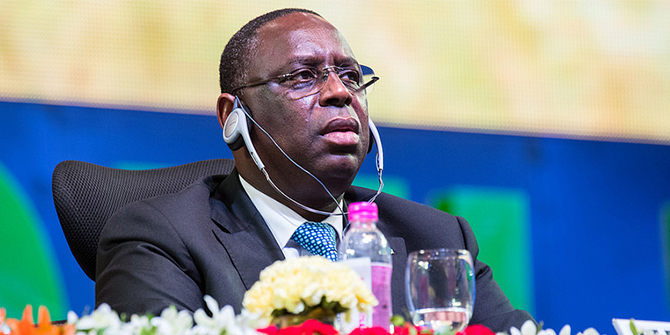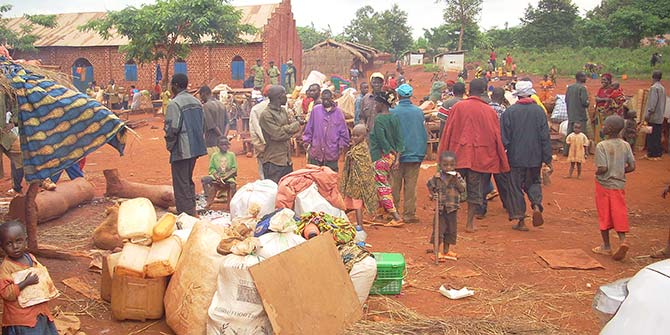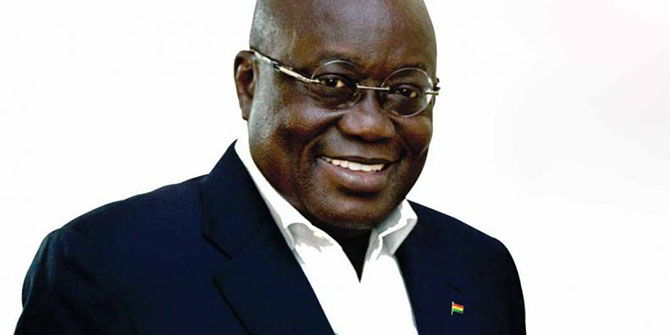LSE’s Bryan Mutiso argues that African states must strengthen their institutions in order to turn the tide on instability.
In political affairs, as in weather systems, sometimes the most violent storms appear out of nowhere. As I write, such a storm is brewing at the door of the African Union – Addis Ababa, Ethiopia.
Ethiopia has declared a State of Emergency following unprecedented social upheaval from the Oromo and Amhara, who claim to be victims of gross oppression and underrepresentation. While these two ethnic groups together form a significant 61 per cent of the country’s population, they have long been at the mercy of a regime dominated by a small Tigray elite, who comprise just six per cent. Historically, the protesting ethnic groups are by far the largest landowners, and as such they are vital to the country’s agriculture-led export economy.
For decades, cries for greater freedom have gone unheard; now this political crisis threatens to unravel.
In the early 1960s, there was a deep divide over whether foreign-imposed ‘national borders’ should be redrawn – or even dismantled altogether – in a newly ‘independent’ Africa. The Casablanca Group of countries largely supported Kwame Nkrumah’s vision of a Pan-African political union. The Monrovia Group – with which Ethiopia eventually sided – argued for maintaining sovereign national borders and strict non-interference in other countries’ affairs. The latter prevailed, and the Organisation for African Unity (OAU) – precursor to the African Union – was established based on a charter of independent statehood, national sovereignty and non-interference.
While the Monrovia Group was politically dominant, evidence suggests the very units of which it was composed were themselves neither cohesive in their public opinion, nor in their post-colonial government structures. Many African leaders who had lent their support to this agenda on the basis of conflict avoidance were later faced with the reality that it had likely entrenched the opposite, as seen not only in Western Sahara, and in Somali-populated lands, but within many African states themselves – for example the Biafra War, the Eritrean War, the Rwandan genocide, Sierra Leone’s civil war, the conflict in South Kordofan, as well as in Cabinda, and if you will allow, the recent turmoil in Burundi, DR Congo, and South Sudan.
Africanists have long emphasised reimagining, rethinking, and reconstituting African institutions as a prerequisite to attaining true development. Inspirational contemporaries such as Chimamanda Ngozi Adichie, Binyavanga Wainaina, Kwame Anthony Appiah, as well as the more established (perhaps even more controversial), Bob Marley, Thomas Sankara, and even Nelson Mandela are exemplars.
Mandela famously decried the racial injustice and lack of equal opportunities in apartheid South Africa, saying his struggle against the system would be one “for which I am prepared to die”. Apartheid is simply the Afrikaans word for separateness. Today, much of Africa remains embroiled in socioeconomic and political separateness, in what renowned scholar, Mahmood Mamdani, calls a reflection of the “general contours of apartheid” itself.
Should separateness such as that seen in Ethiopia fail to be addressed, first and foremost, by the right to petition for change, then we can only wait for it to be filled by the barrel of a gun. If we are sincere unto ourselves, we must acknowledge that the opportune time to reconfigure “national” borders has elapsed; the push to seek creation of more “nation-states” has unequivocally been proven unwise.
With that, we as individual African countries, and concertedly as an African Union, must fearlessly embrace the challenges of diversity. In short, the best way to now deal with historical grievances, real or perceived, is through policy frameworks that viably attend to inequality, rural underdevelopment, and so on.
The days of non-interference by African states in other African countries’ affairs, a key doctrine of the OAU/ early AU, should have long been put to rest. Slowly, and quite admirably, the need for proactive measures is being rediscovered among African leadership, with AU observers being dispatched to monitor national elections, regional rapid deployment forces being organised, and such. However, this is hardly enough.
We must call each other out on the deficiencies of governance, not scornfully, but cooperatively, as is tradition. Ethiopia must transparently resolve this crisis by opening up the media space and inviting all parties to negotiate. Alternatively, a complete disregard will not only threaten individual countries, but entire regions, perhaps even the globe. Elsewhere, it is worth considering – ironically – the critical role being played by Ethiopia in helping secure Somalia from Al-Shabaab. What are the implications of their troops’ withdrawal for regional and global security? Moreover, consider how Somalia disintegrated in the first place, and further still, consider the troves of refugees, and economic migrants that flee the Horn region, as with other undemocratic, unequal, corrupt, and often authoritarian African countries.
The domino effect is, yes, a security and humanitarian one, but primarily, one stemming from issues of governance. Therefore, as we seek to further establish greater freedoms and democracy, we must be ready to address similar questions regarding the role of women, the critical youth bulge and its concomitant opportunities and challenges, the sphere of religion in public affairs, the place of LGBTQ rights, and central to many African conflicts, the question of land ownership.
Bryan Mutiso (@bryan_mutiso) is a masters student at LSE.
The views expressed in this post are those of the author and in no way reflect those of the Africa at LSE blog or the London School of Economics and Political Science.






